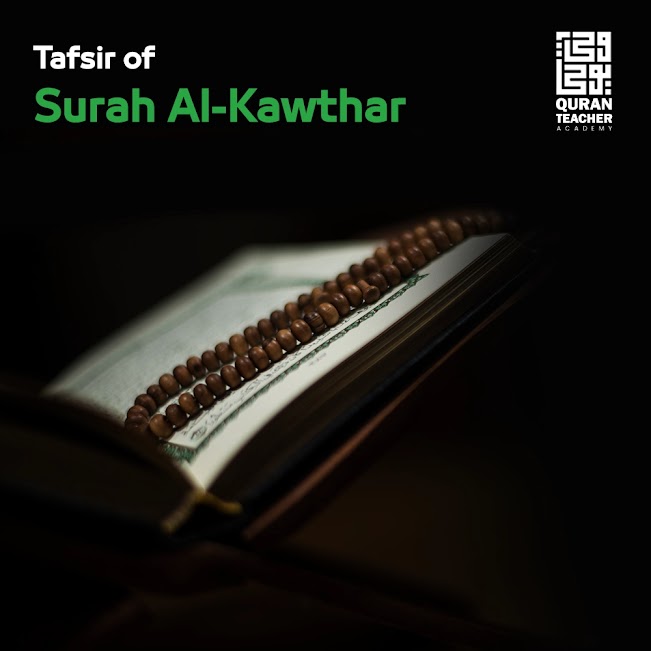Surah Al-Kawthar, the 108th chapter of the Quran, holds deep significance within the Islamic faith. Despite its brevity, this chapter carries profound spiritual and historical implications for believers. With its title meaning “The Abundance,” Surah Al-Kawthar carries a message of divine blessings and abundance bestowed upon the Prophet Muhammad (peace be upon him) and his followers.
In this article, we will delve into the tafsir, or interpretation, of Surah Al-Kawthar, exploring its underlying meanings, historical context, and timeless lessons that resonate with Muslims around the world. Through this exploration, we aim to gain a deeper understanding of the profound significance this short yet powerful chapter holds for believers seeking guidance and inspiration in their journey of faith.
The History of Surah Al-Kawthar
Surah Al-Kawthar is a Meccan surah that was revealed to the Prophet Muhammad (peace be upon him) in Mecca before his migration to Medina. The reason for the revelation of Surah Al-Kawthar was in response to the false claim made by Al-As ibn Wail, a leader of the Quraysh, that the Prophet Muhammad (peace be upon him) had been cut off from having male offspring and that he would not have any descendants.
Surah Al-Kawthar was revealed to inform the Prophet Muhammad (peace be upon him) that he had been granted Al-Kawthar, which is a river in Paradise from which the believers will drink on the Day of Judgment. It also refuted the false accusations made by Al-As ibn Wail.
- Name of the Surah: Surah Al-Kawthar is named after the mention of the river Al-Kawthar, which is a river in Paradise from which the believers will drink on the Day of Judgment.
- Number of Verses: Three verses.
- Placement in the Quran: Surah Al-Kawthar is the 108th surah in the Quran.
- Chronological Order of Revelation: It is a Meccan surah and was revealed after Surah An-Nasr.
- Themes of the Surah: Surah Al-Kawthar speaks about the favor of Allah upon the Prophet Muhammad (peace be upon him) and the bestowal of Al-Kawthar upon him. It also addresses the destruction of his enemies who claimed that his progeny had been cut off.
You can also see: Tafsir of Surah Al-Falaq
Virtues of Surah Al-Kawthar in Islam
We cannot definitively state specific virtues exclusively attributed to Surah Al-Kawthar. However, we can infer its virtues from the name of the surah itself, which is Al-Kawthar.
Anas ibn Malik (may Allah be pleased with him) narrated that the Prophet (peace be upon him) said, “While I was walking in Paradise, I came across a river whose banks were made of hollow pearls. I asked Gabriel, ‘What is this, O Gabriel?’ He replied, ‘This is Al-Kawthar which your Lord has given you.’ Its scent was sweeter than musk and its taste purer than honey.” [Sahih Al-Bukhari]
Anas ibn Malik (may Allah be pleased with him) also described the river Al-Kawthar, saying, “While I was walking in Paradise, I came across a river whose banks were made of hollow pearls. I asked Gabriel, ‘What is this, O Gabriel?’ He replied, ‘This is Al-Kawthar which your Lord has given you. Its mud or fragrance is more fragrant than musk.'” [Sahih Al-Bukhari]
- From the Prophet’s joy and smile upon its revelation, we can deduce the virtue of this surah, highlighting its significance and greatness.
You can also see: Tafsir of Surah Al-Ikhlas
Interpretation of Surat Al-Kawthar
In the name of Allah, the Most Gracious, the Most Merciful
{بسم الله الرحمن الرحيم}
“Indeed, We have granted you, [O Muhammad], al-Kawthar. So pray to your Lord and sacrifice [to Him alone]. Indeed, your enemy is the one cut off.
{ إِنَّا أَعْطَيْنَاكَ الْكَوْثَرَ (1) فَصَلِّ لِرَبِّكَ وَانْحَرْ (2) إِنَّ شَانِئَكَ هُوَ الْأَبْتَرُ (3) }
Indeed, We have granted you al-Kawthar (abundance and goodness).
This refers to the abundant goodness and great virtue bestowed upon you in both worlds. This includes the River al-Kawthar in Paradise, which is a river whose length is equal to a month’s journey, its width is also a month’s journey, and its water is whiter than milk and sweeter than honey. Whoever drinks from it will never feel thirst again.
So pray to your Lord with sincerity in all your prayers and offer sacrifices to Him.
The mention of these two acts of worship is emphasized because they are among the best acts of worship through which a servant can draw closer to their Lord. Al-Baghawi mentioned regarding the verse “So pray to your Lord and sacrifice [to Him alone],” that Muhammad ibn Ka’b said, “There were people who used to pray to other than Allah and offer sacrifices to other than Allah. So Allah commanded His Prophet, peace be upon him, to pray and offer sacrifices to Allah, the Almighty.”
Indeed, your enemy is the one cut off.
This means that those who belittle and hate you because of what you have brought (the message of Islam) will have their traces cut off. Their actions and descendants will be cut off, and they will be deprived of any lasting impact or remembrance.
You can also see: Tafsir of Surah Al-Nas
You can join Wahion Youha Academy now to start your learning journey in memorizing the Holy Quran and interpreting the verses of the Holy Quran while joining courses on Islamic Studies and Quranic Sciences by a group of specialized teachers.


